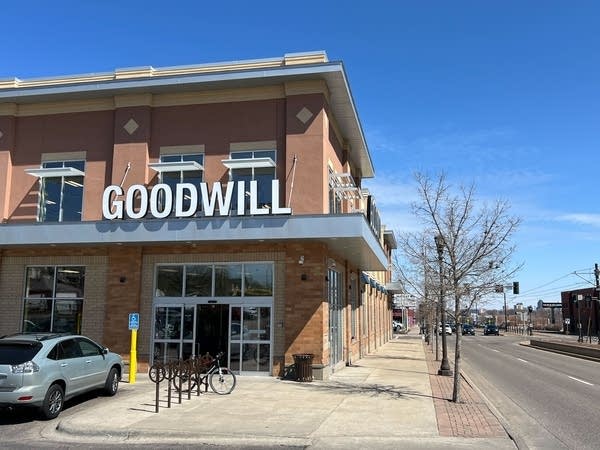As cost of new products rises, many thrifty shoppers look to secondhand

A Goodwill thrift store on Tuesday along University Avenue in St. Paul, one of many Goodwill locations around the Twin Cities and across Minnesota.
Andrew Krueger | MPR News
Go Deeper.
Create an account or log in to save stories.
Like this?
Thanks for liking this story! We have added it to a list of your favorite stories.


